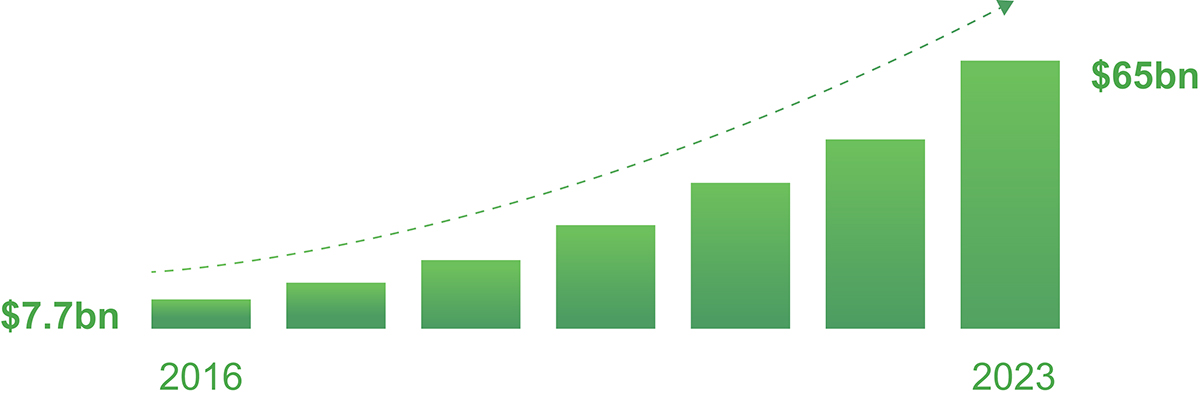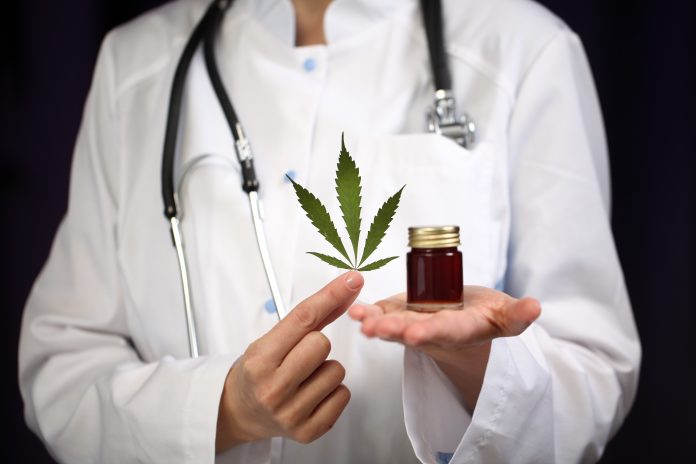Ian C Tordoff, CEO of Block Commodities Ltd, provides a snap-shot of changes in the medical marijuana industry
The Block Commodities team has followed the development of the medical marijuana industry over a number of years. We had the good fortune initially to become involved with experienced U.S. cultivators and African licence holders for medical marijuana and our journey has become tied to a global transformation which has quietly gathered pace in the re-assessment of the value of marijuana from “users”, to legislators to revenue collectors.
As a listed public company, we are highly regulated and our focus is on legal growth, processing, research and the sale of primarily CBD and THC products. Whilst our project started in Africa, we have also quickly acquired licences for research and two further areas for cultivation and growth in Europe and Africa, with re-investment of a percentage of profits in social and infrastructure projects. Our objective is to develop a high-quality growth, research and distribution network.
As with any industry sector, the global market can at first appear chaotic, however, un-picking the myriad legislative and regulatory requirements across Africa, Europe, Canada and the U.S., it is clear that established technical expertise, supply-lines, finance and supporting industries are established and continue to develop rapidly. Uruguay, Canada and Luxembourg have set a national legislative pace and in the U.S., 33 States have legalised the medicinal use of which eleven have endorsed recreational use. The collective legislative response in the European Union (EU) has been slower although, “the European Parliament has positioned itself in favour of legalising the therapeutic use of cannabis by approving a resolution urging the European Commission and all Member States to address the regulatory, financial and cultural barriers related to the plant.” (A)
Whilst centralised policy remains undeveloped, it has become apparent in our engagements at a national level that Spain, Germany and Portugal are developing solid infrastructures with multiple licences for growth, processing research and export granted; the Dutch have superb quality growth capability, established analytics and labs; Denmark is building state of the art processing capacity and the Baltic State’s crops are being harvested and processed. Malta, Switzerland, Poland and a number of States in the Adriatic have licenced growth and production at various stages of development. China, where the possession and use remain illegal, is pragmatically becoming a major volume producer of CDB and THC labs are already established by European businesses. However, for the moment, the commercial muscle remains in the U.S. and Canada, where consolidation is already becoming evident and applications to list on European exchanges are growing.
The World Health Organization (WHO) has recommended a rescheduling of Cannabis within the international drug control framework to facilitate trade for medicinal and scientific purposes re-aligning the 1961 and 1971 conventions. However, the Commission for Narcotic Drugs delayed its vote on the proposal earlier this year. In August meanwhile, The American Bar Association endorsed the ending of Marijuana Prohibition, urging Congress to end the conflict between State and Federal Law. (1)
While legislative and regulatory barriers continue to be asymmetric and porous consumer demand continues to outstrip supply and while this has a significant impact on the quality of product reaching consumers, it also risks criminalising consumers and inhibits the generation of tax revenues. This has been evident in the UK where evidence for the efficacy of plant-based treatments for alleviating the symptoms of diseases such as epilepsy, Alzheimer, arthritis, asthma, cancer or mental disorders such as psychosis are acknowledged (2) but existing clinical studies are considered insufficient. (3) Some parents of child suffers are risking prosecution to secure supplies from sources where treatments are legally available. (4)

The medical profession’s response whether to THC or CBD based products is not unexpected, Harvard MD Peter Grimspoon on CBD says, “We need more research but CBD may prove to be an option for managing anxiety, insomnia and chronic pain. Without sufficient high-quality evidence in human studies, we can’t pinpoint effective doses and because CBD is currently mostly available as an unregulated supplement, it’s difficult to know exactly what you are getting.” (5)
At the same time in an adjacent Harvard function, a study on a cannabis-derived flavonoid as a treatment for pancreatic cancer with a 70% success rate in mice, has been announced as having a potential ‘major impact’ on cancer treatment in humans. (6)
Again, despite professional caution, a recent Gallup Poll found, “public support for legalising marijuana has surged, 86% of U.S. supporters of legal marijuana saying its medicinal benefits are a very important reason they support legalisation…also freeing up police resources to focus on other crimes… and generating tax revenue…re key reasons for their support.” (7)
The groundswell in consumer demand is compelling with one in seven Americans saying they personally use cannabidiol (CBD) based products…(8)
According to data compiled by Mordor Intelligence, the global cannabis market will be worth $65 billion by 2023.
The Autonomous University of Barcelona (UAB) calculated the revenue that the Spanish Public Treasury would receive €3.3 billion ($3.71 billion) per year in taxes and social security contributions. A With the benefit of legalisation diminishing the black-market share to 15% of total demand.
Based on the Spanish population, a crude extrapolation to the EU population would create €37 billion revenues, enough to cover a couple of Brexits and if the whole European population is taken into account, the figure is €53 billion.
Demand is already evident and growing: we see our role as cultivators and innovators creating a quality supply for medical and therapeutic use. Block Commodities Limited has pivoted its agriculture business to medicinal cannabis and in the process has acquired an exceptional Board; a world-class scientific and academic community; seed-stock, experienced cultivators and an enviable network of partners, customers and investors. We are collectively focused on the challenges and successes to come.
References
A Forbes Magazine Mar 11, 2019, Ana Garcia Valdivia
The Economic Implications Behind The Cannabis Legalization Debate
1 #ABAAnnual.
2 https://www.bmj.com/content/366/bmj.l5280
3 https://www.bmj.com/content/366/bmj.l5280
4 https://www.thetimes.co.uk/article/childrens-cannabis-treatment-is-too-expensive-for-nhs-zj2xvj09f
4 https://www.bbc.co.uk/news/health-48826857
5 www.health.harvard.edu/blog/cannabidiol-cbd
7 https://news.gallup.com/poll/258149/medical-aid-top-reason-why-legal-marijuana-favored.aspx
8 https://news.gallup.com/poll/263147/americans-say-cbd-products.aspx
Ian C Tordoff
CEO
Block Commodities Ltd
Please note: This is a commercial profile
Editor's Recommended Articles
-
Must Read >> Medical cannabis advocacy and education















